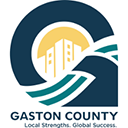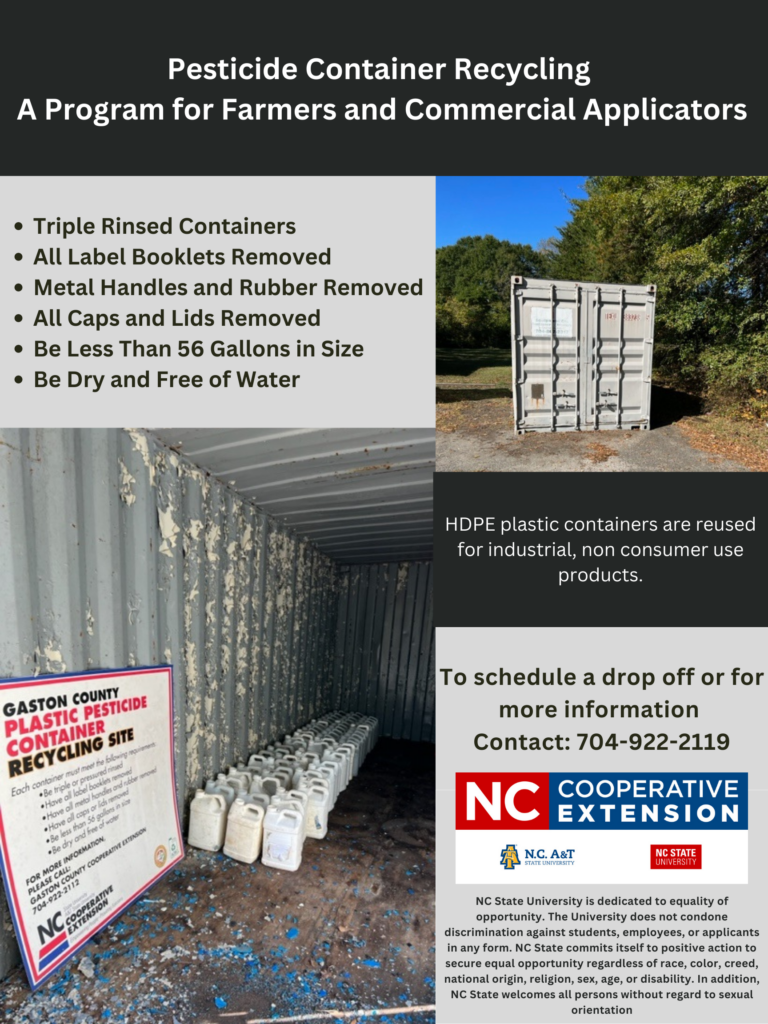What to Do With Empty Pesticide Containers
go.ncsu.edu/readext?892621
en Español / em Português
El inglés es el idioma de control de esta página. En la medida en que haya algún conflicto entre la traducción al inglés y la traducción, el inglés prevalece.
Al hacer clic en el enlace de traducción se activa un servicio de traducción gratuito para convertir la página al español. Al igual que con cualquier traducción por Internet, la conversión no es sensible al contexto y puede que no traduzca el texto en su significado original. NC State Extension no garantiza la exactitud del texto traducido. Por favor, tenga en cuenta que algunas aplicaciones y/o servicios pueden no funcionar como se espera cuando se traducen.
Português
Inglês é o idioma de controle desta página. Na medida que haja algum conflito entre o texto original em Inglês e a tradução, o Inglês prevalece.
Ao clicar no link de tradução, um serviço gratuito de tradução será ativado para converter a página para o Português. Como em qualquer tradução pela internet, a conversão não é sensivel ao contexto e pode não ocorrer a tradução para o significado orginal. O serviço de Extensão da Carolina do Norte (NC State Extension) não garante a exatidão do texto traduzido. Por favor, observe que algumas funções ou serviços podem não funcionar como esperado após a tradução.
English
English is the controlling language of this page. To the extent there is any conflict between the English text and the translation, English controls.
Clicking on the translation link activates a free translation service to convert the page to Spanish. As with any Internet translation, the conversion is not context-sensitive and may not translate the text to its original meaning. NC State Extension does not guarantee the accuracy of the translated text. Please note that some applications and/or services may not function as expected when translated.
Collapse ▲Pesticide Container Recycling Program
Who can participate: The Pesticide Container Recycling program is available to all licensed pesticide applicators.
What are the rules: Non-refillable, high-density polyethylene (HDPE) plastic crop protection and specialty pesticide product containers up to 55 gallons in size that are triple-rinsed or pressure rinsed will be accepted. Caps, the label booklet, and other non-HDPE parts (such as metal handles or rubber linings) must be removed. The containers must be dry.
How do I rinse my container: Details for proper rinsing can be found at USAg Recycling “Proper Rinsing”.
Why participate:
- Encourages applicators to utilize products that maximizes their investment.
- Encourages applicators to remove clutter from pesticide storage areas.
- Lessens waste entering our landfills.
- Reduces risks associated with environmental contamination
When and Where can I recycle these materials: Gaston County’s pesticide container recycling program is located at 1303 Dallas-Cherryville Hwy, Dallas, NC 28034. Hours of operation are Monday-Friday, 8:00 a.m.-5:00 p.m. All drop offs should be scheduled by calling 704-922-2119 or 704-922-2130.
Questions: Contact 704-922-2119





